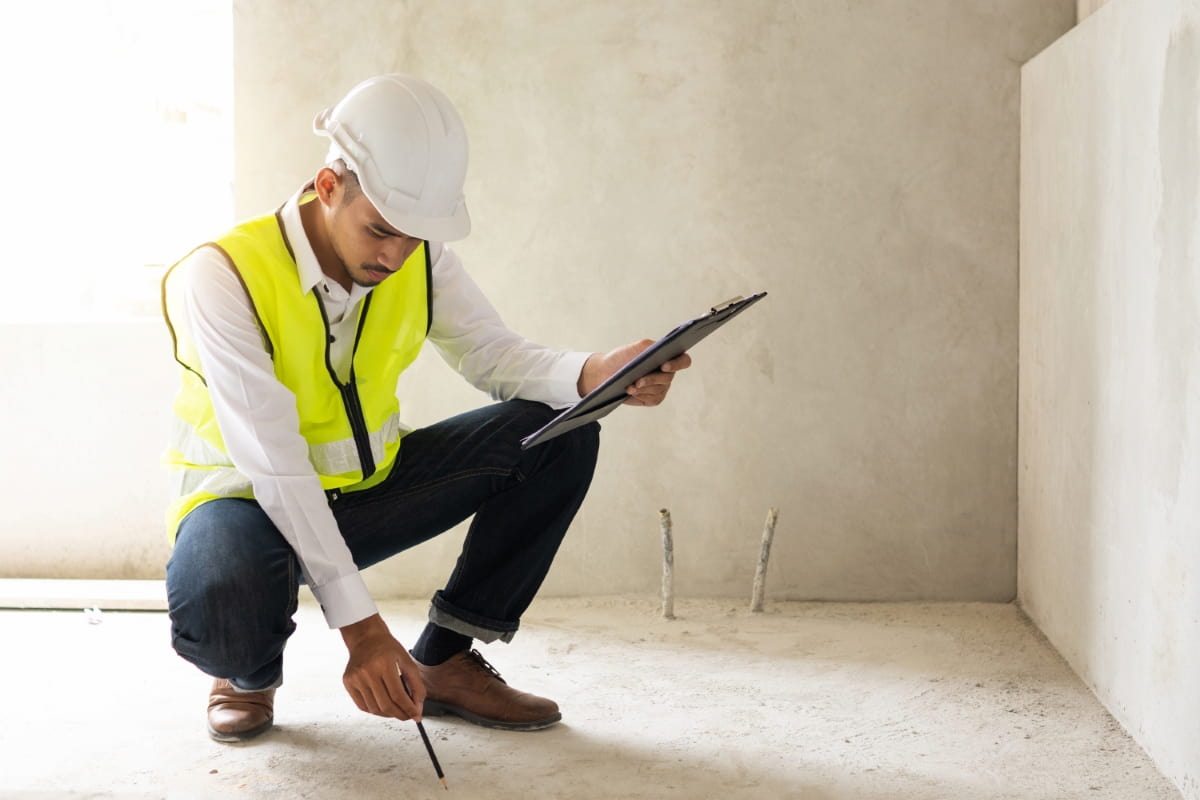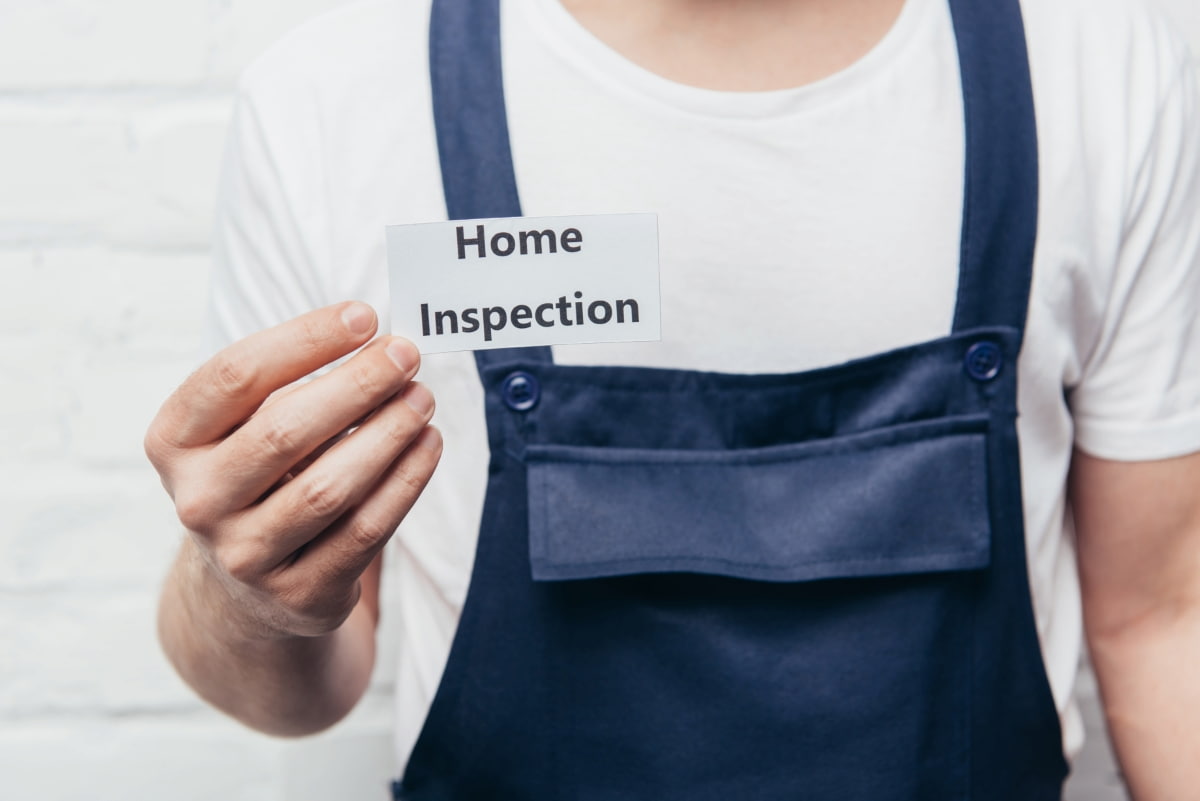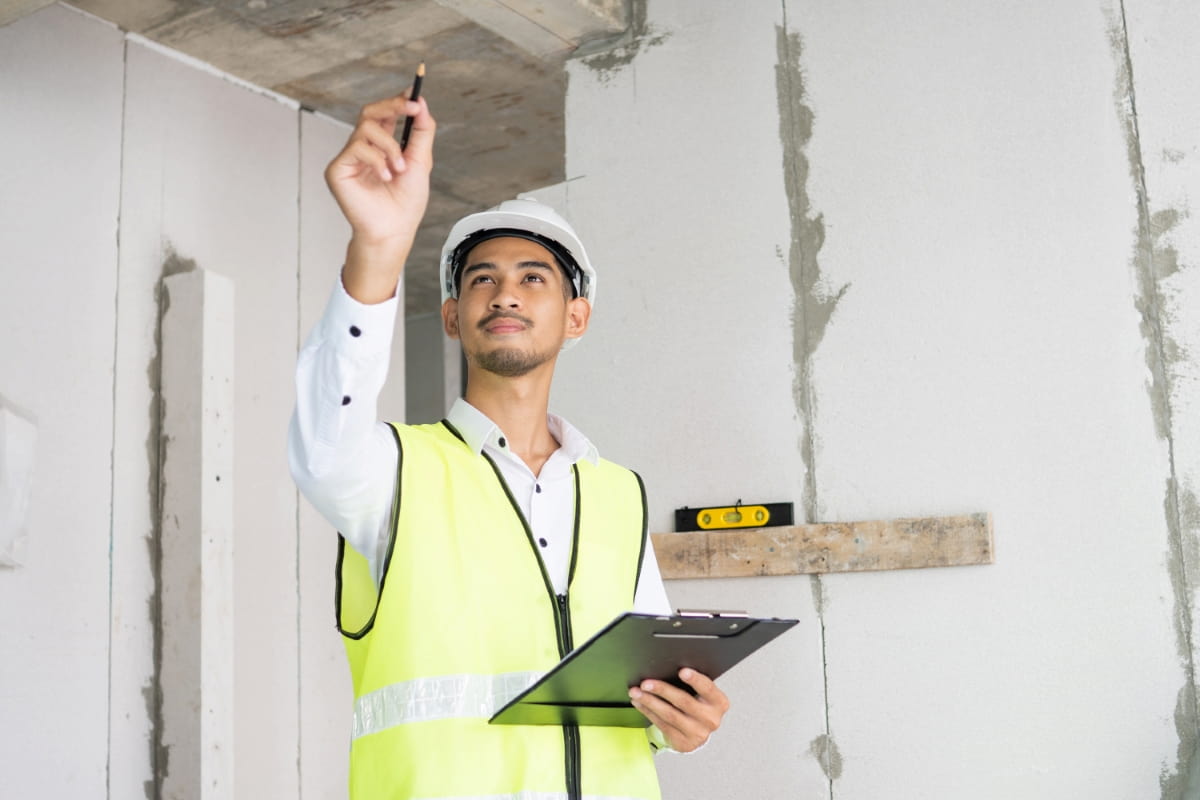A home inspection business can provide a stable and profitable entrepreneurial venture for those interested in the real estate market and construction industry. Home inspections are often essential to real estate transactions, whether buying, selling, or refinancing a home. These inspections can uncover potential issues, ensuring that all parties know of any repairs or renovations needed.

You could build a successful business in this industry if you have the right skills, training, and mindset. Here we learn how to start a home inspection business step by step, covering the requirements, business plan, licensing, marketing, equipment, training, insurance, and pricing strategies.
Starting Your Own Home Inspection Business
Requirements for Starting a Home Inspection Business
Starting a home inspection business involves more than just deciding to set up a shop. You must meet several requirements to establish and operate a successful home inspection business. Firstly, knowledge and experience in construction or real estate are invaluable. Home inspectors must possess comprehensive knowledge of all aspects of a residential property, encompassing the foundation, roof, and all components in between, such as electrical, plumbing, heating, and cooling systems, and structural elements.
If lacking in this expertise, individuals should contemplate pursuing a career within the construction or real estate sectors, or alternatively, complete relevant training or educational programs. Secondly, customer service skills are essential. As a home inspector, you’ll work closely with homebuyers, real estate agents, and homeowners.
Therefore, you must communicate effectively, answer questions clearly, and be patient and helpful. Lastly, a home inspector needs physical fitness. Inspecting a home is not a desk job. It involves a lot of walking, climbing, and crawling in various house areas. Therefore, good health and physical fitness are crucial.
Business Plan for a Home Inspection Company
A detailed and well-thought-out business plan is the blueprint for your home inspection company. It outlines your business’s goals, the strategies to achieve them, and the resources you’ll need. Your business plan should include an executive summary, a brief overview of your business, and a company description that provides information about your business, including the services you’ll offer and the need for those services in your market.
In case you missed it: Best Franchise Business in Village in India

Next, conduct a market analysis. Identify your potential customers, understand their needs, and research your competition. Your organization and management structure should clearly outline your business’s structure and who is in charge of what. Lastly, service or product lines, marketing sales strategies, and financial projections should all be included. These sections will outline your plan to attract customers, the costs associated with running your business, and your revenue projections.
Licensing and Certifications for Home Inspectors
Home inspector licensing requirements differ among states, with some states mandating licensure and others not. In states where licensure is compulsory, passing a comprehensive examination assessing expertise in home systems, components, and inspection methodologies is usually a prerequisite.
Certification, while not always required, can enhance your credibility and attract more customers. Organizations like the American Society of Home Inspectors (ASHI) and the International Association of Certified Home Inspectors (InterNACHI) offer certification programs that require passing exams and adhering to professional standards and ethics.
Marketing Strategies for a Home Inspection Business
To attract customers, you need effective marketing strategies. Build a professional website outlining your services, credentials, and contact information. Enhance your website’s search engine optimization (SEO) to ensure effortless online discoverability by prospective customers. Establishing professional connections with local real estate agents can generate potential clients and contribute to business growth. Real estate agents often recommend home inspectors to their clients, so developing relationships with these professionals can lead to referrals.
Create accounts on platforms like Facebook, Instagram, and LinkedIn to share valuable content, promote your services, and engage with potential customers. Another marketing strategy is offering additional services such as radon testing, mold, or pest inspections. The inclusion of supplementary services sets your business apart from rivals and enhances its attractiveness to prospective clients.
Equipment Needed for a Home Inspection Company
To conduct thorough home inspections, you’ll need certain equipment. A basic toolkit for a home inspector might include a flashlight, ladder, electrical circuit tester, moisture meter, and infrared thermometer. High-tech equipment can also be beneficial. For example, thermal imaging cameras can detect temperature variations, indicating problems like heat loss or electrical issues. Drones offer aerial perspectives of inaccessible areas such as roofs. Software is another essential tool. Home inspection software can help you record your findings, create reports, and manage your appointments and billing.
Training and Education for Aspiring Home Inspectors
As a home inspector, you need a wide range of knowledge about various aspects of a home. While experience in construction or real estate can provide this knowledge, training programs, and education can also be beneficial. Many organizations and schools offer home inspection training programs.
These programs often cover home inspection, home systems and components, professional practices, and business operations. Continuing education is also important. As construction practices and standards evolve, you need to stay current. Many professional organizations, as do some schools and training programs, offer continuing education opportunities.
Insurance Options for Home Inspection Businesses
Insurance is crucial for a home inspection business. It is advisable to evaluate various insurance options. Firstly, general liability insurance offers protection against claims related to bodily injury and property damage. This coverage extends to legal expenses and potential settlements. Secondly, professional liability insurance, or errors and omissions (E&O) insurance, can protect you from claims related to your services.
In case you missed it: Creative Small Business Ideas With High-Profit Potential

For example, if a customer claims you missed a significant issue during a home inspection, your E&O insurance can cover your legal fees and any settlements or judgments. Lastly, consider worker’s compensation insurance if you have employees. This insurance provides coverage for medical costs and lost income in the event of an employee’s injury.
Setting Competitive Pricing for Home Inspection Services
Setting competitive pricing for your services can attract customers and ensure profitability. Research what other home inspectors in your area charge to determine your prices. You want to be competitive, but you must also cover your costs and make a profit. Consider your costs, which include overhead costs like office space, equipment, insurance, and marketing, and direct costs like labor and materials.
Also, consider the value you provide. Providing exceptional service, additional offerings, or possessing unique qualifications or credentials allows for the possibility of setting a higher price point. Finally, consider your target customers. What are they willing to pay for home inspection services? If you’re targeting high-end customers, they might be willing to pay more for top-notch service. If you’re targeting budget-conscious customers, you might need to offer more competitive pricing.
Conclusion
Starting a home inspection business requires careful planning and preparation. You can establish a successful home inspection business by meeting the requirements, creating a detailed business plan, obtaining the necessary licensing and certifications, developing effective marketing strategies, acquiring the necessary equipment, pursuing relevant training and education, securing appropriate insurance, and setting competitive prices.
- Handicraft Making at Home: A Small Profitable Business Idea
- Pet-Tech Startups: Innovations for Animal Lovers
- Tech Repair Services: Meeting the Demand for Gadget Maintenance
- Maximizing Rewards: Smart Credit Card Habits for Cashback and Points
- Ultimate Guide to Making Money from Goat Milk Business
- How to Start an Agricultural Value Added Product Business
- Value-Added Business Ideas for Greenhouse: The Best Ways to Make Profits with Greenhouse Farming
- How to Make Profits with Organic Country Chicken: Best Strategies for Beginners
- 10 Value-added Business Ideas for Millets: Low-investment and Highly Profitable